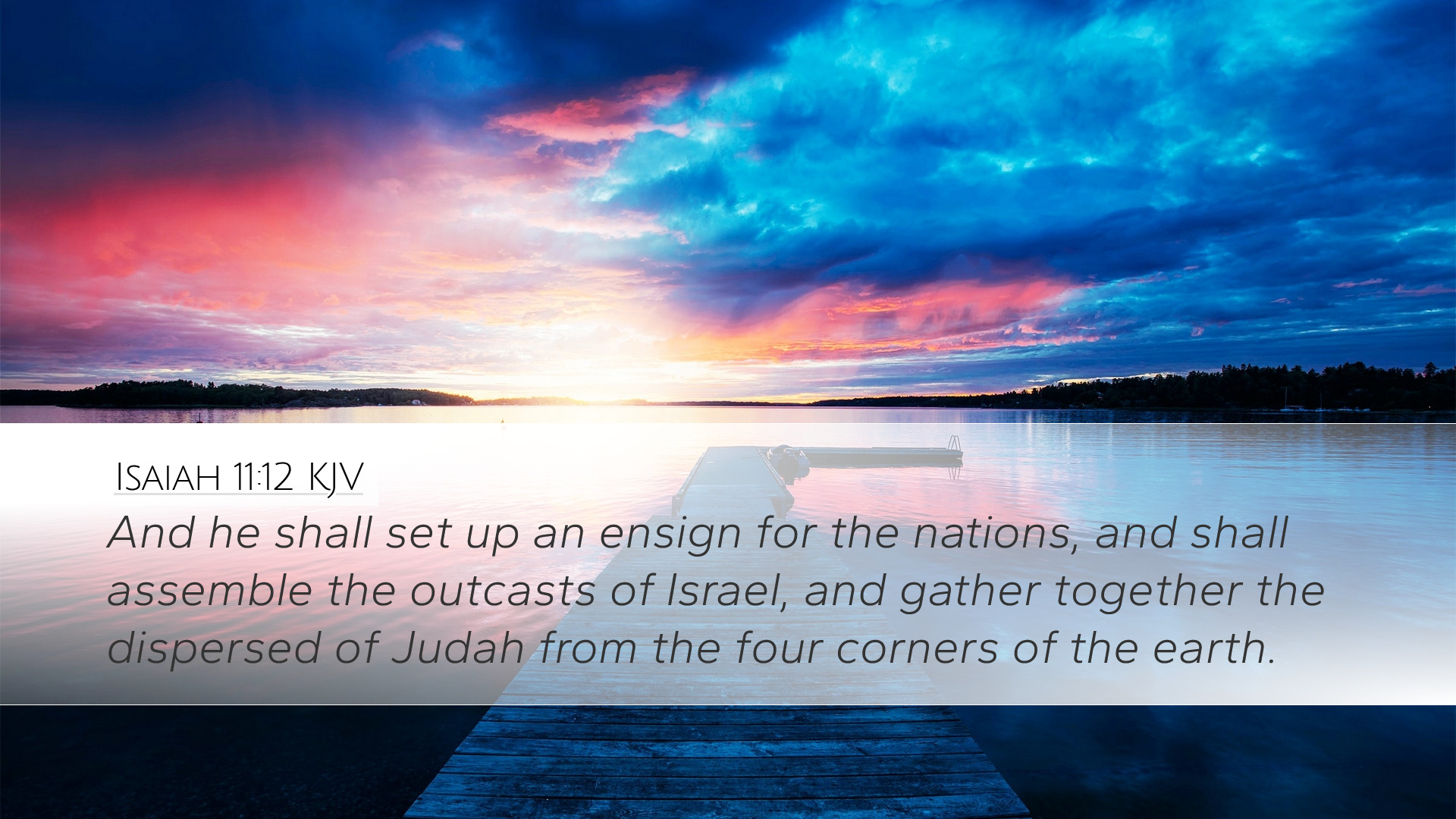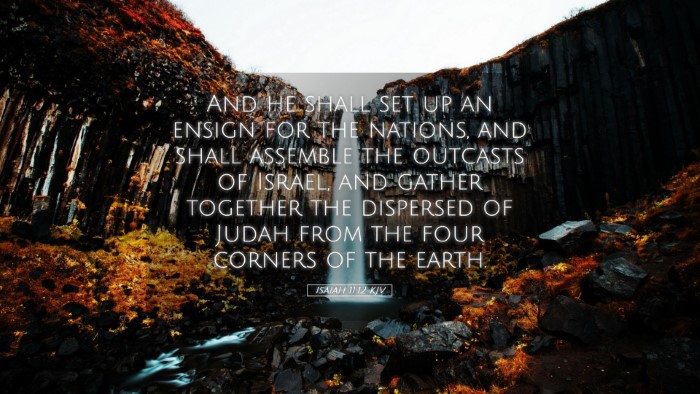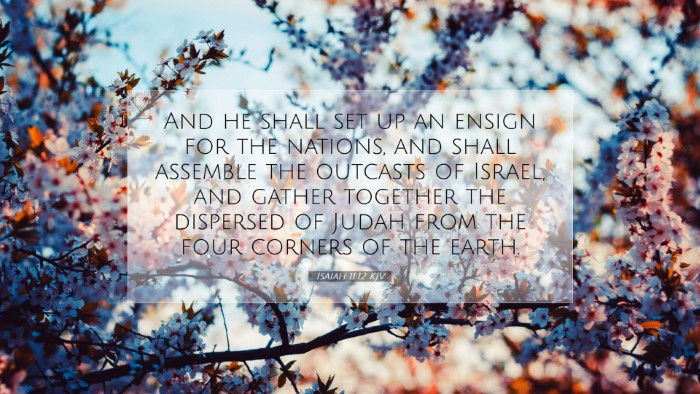Commentary on Isaiah 11:12
Isaiah 11:12 states: "And he shall set up an ensign for the nations, and shall assemble the outcasts of Israel, and gather together the dispersed of Judah from the four corners of the earth." This verse encapsulates a profound promise regarding the future restoration and gathering of God's people. The insights drawn from renowned public domain commentaries illuminate the theological depth and pastoral significance of this passage.
Exegesis and Context
Isaiah, a major prophet in the Old Testament, wrote during a time of crisis for Israel and Judah. His prophecies often oscillate between judgment and hope, presenting a nuanced understanding of God’s righteousness intertwined with His mercy. This particular verse lies within a larger context of Isaiah 11, where the Messianic figure is introduced—characterized as a righteous and just ruler.
Messianic Implications
According to Matthew Henry, this verse conveys the expectation of a coming Messiah who will serve as an ensign, or banner, that gathers nations. The use of the term “ensign” signifies a call to come together, indicating not only a physical gathering but also a spiritual unification under the reign of the Messiah. This ruler will be graciously inclusive, reaching out to the ‘outcasts’ and the ‘dispersed’ of Israel.
The Gathering of God’s People
Albert Barnes reflects on the notion of assembling the outcasts. He states that this is both a literal and metaphorical gathering. It refers to the diaspora of the Jewish people and signifies God’s intent to restore His people from alienation and dispersion. The 'four corners of the earth' is a vivid imagery that illustrates the universality of this gathering, which echoes the global calling of the Gospel.
Theological Themes
This passage embodies several critical theological themes:
- Redemption and Restoration: The promise that the Lord will gather those who are lost highlights the themes of redemption. It serves as an assurance that God does not abandon His people but seeks to restore them.
- Inclusivity of God’s Kingdom: The gathering of outcasts emphasizes that God's invitation extends beyond Israel to all nations, thus the Messianic rule embodies inclusivity and hope for all humanity.
- Divine Sovereignty: The control God exerts in gathering His people from all corners of the earth reflects His sovereignty over history and nations.
Pastoral Application
The implications of Isaiah 11:12 are profound for pastoral ministry. This verse can provide hope and comfort to those who feel marginalized or dispersed in today's society:
- Hope for the Marginalized: Pastors can draw on this passage to offer solace to those who feel like outcasts, reminding them of God’s active pursuit to gather them into His family.
- Evangelistic Mission: The universality of this verse serves as a compelling reminder of the church's mission to reach out to the lost, irrespective of their background.
- Encouragement for Unity: The call for gathering underscores the importance of unity within the Church. Pastors can use this to foster an inclusive atmosphere that welcomes diversity.
Conclusion
Isaiah 11:12 stands as a powerful testament to the hope of restoration and the universal call of God. Through the insights provided by Matthew Henry, Albert Barnes, and Adam Clarke, we gain a deeper understanding of the theological richness of this prophetic declaration. The implications of gathering, restoration, and inclusiveness resonate deeply in both ancient contexts and present-day challenges, making this verse a pivotal reference for scholars, pastors, and students of Scripture alike.


